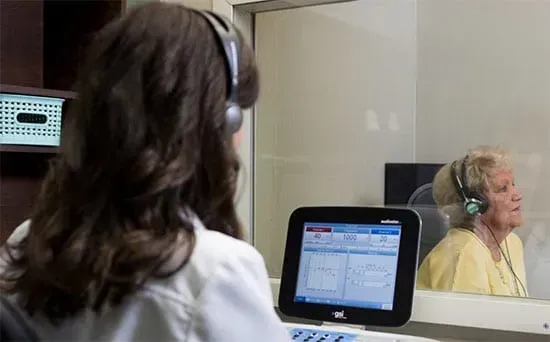What Are the Best Hearing Aids for Severe Hearing Loss?

Traditional hearing aids are an effective treatment for many people with hearing loss. Yet, certain people with severe hearing loss receive little or no benefit from conventional hearing aids. Someone in that frustrating situation may ask me or one of my colleagues what the best hearings aids are for their severe hearing loss. When our evaluation determines traditional hearing aids just aren’t working for someone, the best devices for that person may be cochlear implants instead of traditional hearing aids.
What Cochlear Implants Do
Although both hearing aids and cochlear implants are electronic devices, they work quite differently. A hearing aid makes sounds louder. A cochlear implant sends signals to your auditory nerve. Your brain takes those signals in as the sensation of sound. Cochlear implants are not a cure for hearing loss.
How a Cochlear Implant Works
A cochlear implant has an internal portion that is surgically implanted beneath your skin that’s behind your ear. The device also has an external section that goes behind your ear. The outer piece has a microphone to pick up sound and a sound processor to turn sound into digital signals. A transmitter sends the signals to the receiver that’s been implanted. The receiver sends signals to electrodes that have also been implanted. The signals stimulate the auditory nerve. Your brain receives the signals as sound.
Who Can Get Cochlear Implants
- Cochlear implants may be the right option for people who:
- Are adults or children who are at least 12 months old
- Have severe or profound hearing loss in both ears
- Have tried hearing aids with little or no improvement
- Do not have medical conditions that could make surgery dangerous
We like children to get their implants as early as possible. Children have the most success with cochlear implants when they receive them before their natural period of language development. For adults, cochlear implants usually work better for individuals who could speak before they began experiencing hearing loss.
Scheduling a diagnostic appointment with us is the way to find out if you’re a good candidate for implants. During the diagnostic appointment, one of our audiologists determines whether you need cochlear implants. Our audiologist can also explain the next steps in the process.
What to Expect During Cochlear Implant Surgery
I’m aware even the word surgery is frightening for some people. Hopefully, a few facts about cochlear implant surgery will alleviate those fears. Cochlear implant surgery is a routine procedure that’s been performed in the United States for decades. It’s an outpatient procedure, which means you get to go home the day of the surgery. You’ll receive general anesthesia to keep you in a sleep-like state during the surgery. It takes the surgeon about four hours to put the implants in both ears.
We have established a partnership with Associates in ENT to provide cochlear implant surgery at our Chattanooga office. If you or your child struggle with severe hearing loss and traditional hearing aids haven’t helped, click
here to schedule a diagnostic appointment.
Recent Posts
